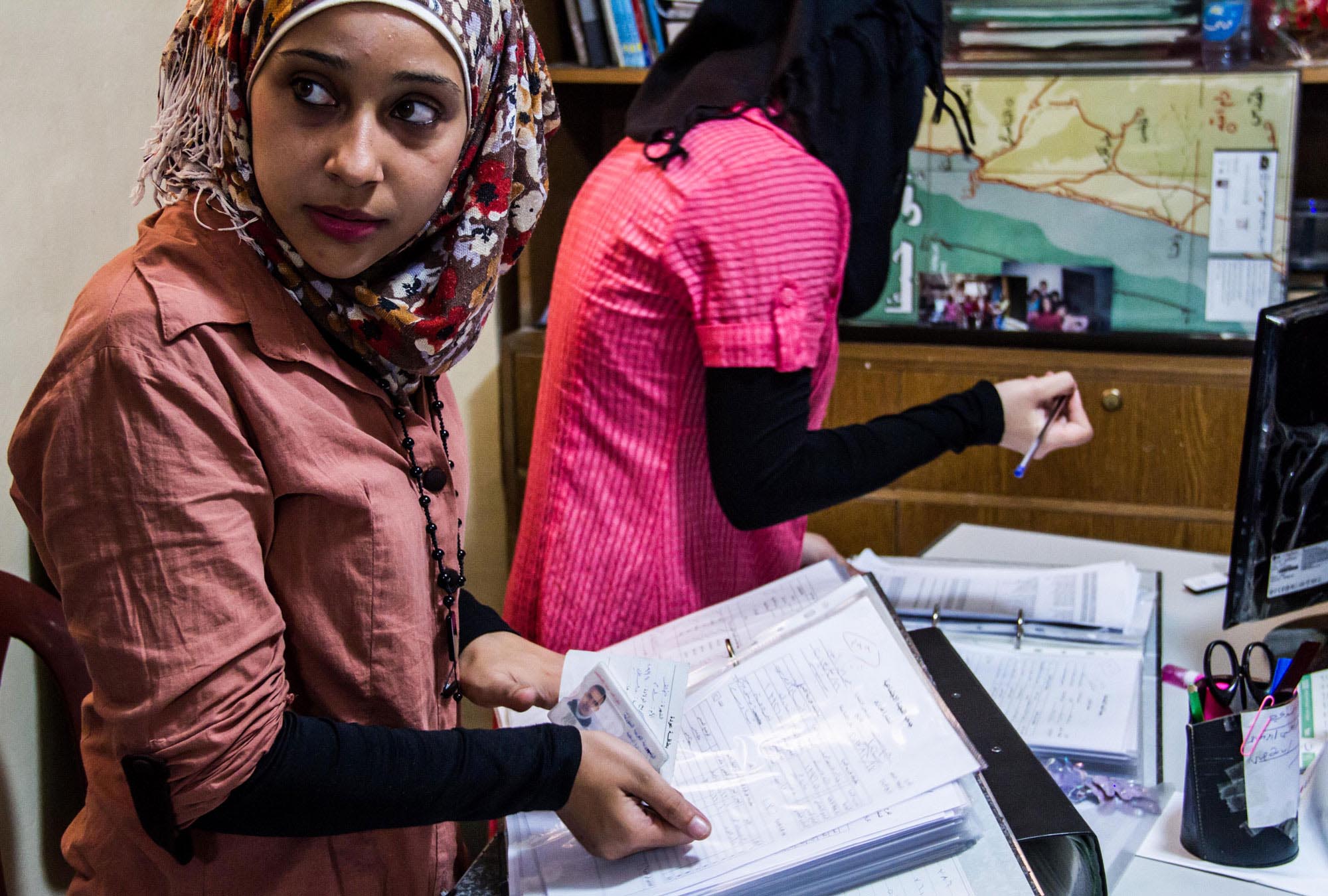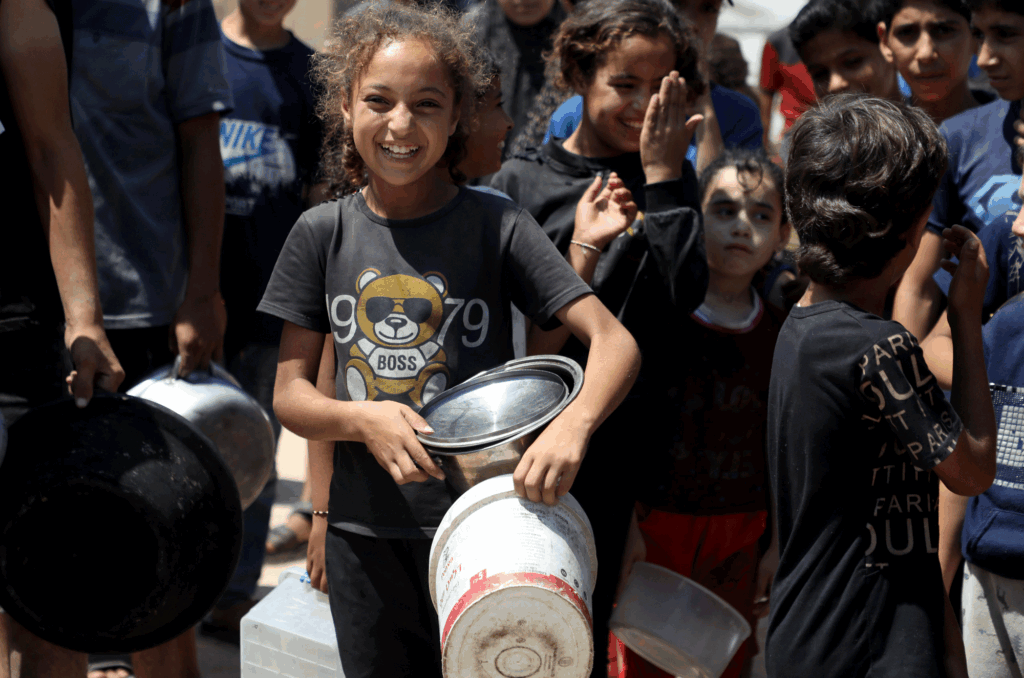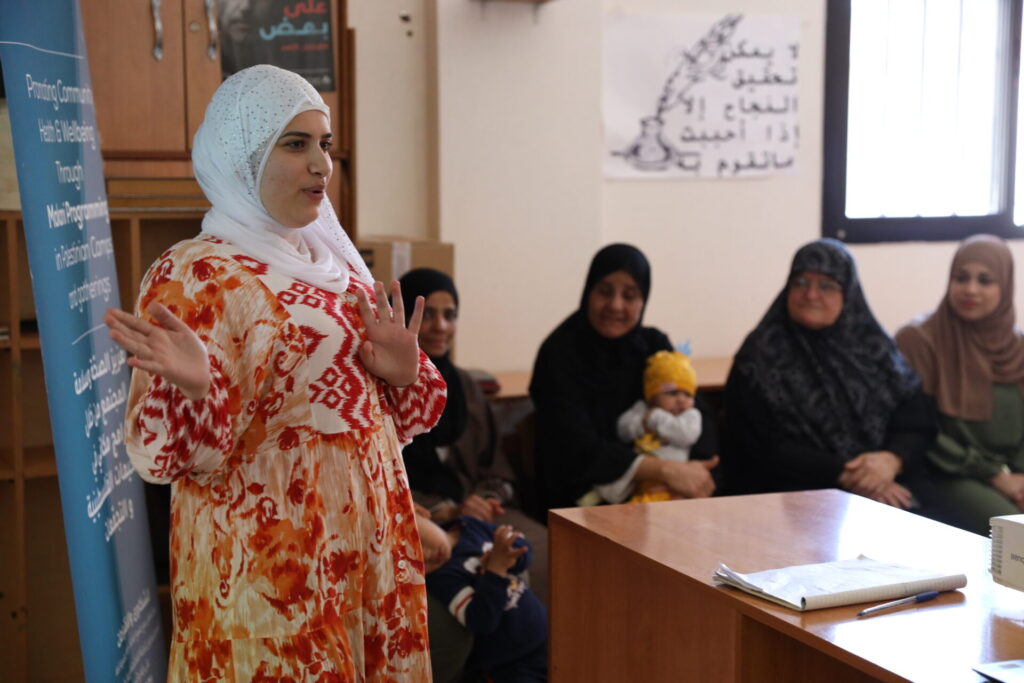Aug, 2013
The UN estimates that three out of four refugees of some 80,000 Palestinian refugees now in Lebanon are women and children. They have sought refuge in the Palestinian camps, among the most impoverished communities. Many of the women have lost or left behind loved ones, belongings and dreams of a peaceful life. Now, they find themselves without a source of income or proper housing, no privacy or social support.
Sitting in front of Najdeh organization’s distribution center in Shatila camp, Beirut, Ghada is opening the family hygiene kit that she has just received. As she unfolds some of the newly-gifted towels, she watches her daughter skip through the alley to ask their neighbor to help them carry the box back home. The packages include hygiene items and food coupons, as well as an abaya (long dress) and hejab (head scarf) for those who want them.
Sitting in Shatila camp is something she never expected to do again. “I left Shatila 10 years ago to get married to a Syrian Palestinian living near Damascus,” she sighs. “Now, I am back where I was born, receiving donations and waiting for my husband. Life is really strange sometimes.”
Ghada is taking care of her three children on her own, like many of the women who fled Syria’s fighting without their husbands, who were either killed in the conflict, imprisoned or unable to leave the country.
Women and Children are Most Vulnerable Refugees
Based on a needs assessment, Anera has been distributing humanitarian relief to Palestinian refugees from Syria. The first distribution took place in April in southern Lebanon. This second relief aid distribution in the Beirut area has focused on women, tailoring the aid to their needs. “To help reduce their vulnerability, particular attention was given to the role of women as the family’s main supporter,” explains Dima Zayat, Anera’s health program manager. “Shatila camp”
Anera’s project, “Critical Support for Palestinian Refugee Women from Syria,” was funded through the UN Office for the Coordination of Humanitarian Affairs (OCHA) and Anera’s private donors, including LDS Charities. A focus of the assistance for women is emotional support.
Ghada says she really appreciated the psychosocial activities that were organized, along with the emergency aid kits. “The sessions offer information about important health issues, domestic violence and how to deal with our stressed children,” she explains. The sessions also provide a forum for refugee women to meet with social workers and each other to share experiences and often forge new friendships and lasting ties.
“Had I not attended these workshops, I would not have met my only friend here in Shatila,” says Ghada. “She helped me find house I could afford and also small job as an embroiderer.” In the absence of her husband, she says she can confide her worries to her friend. “When I talk to my husband, I don’t want to worry him so I don’t tell him that we never have enough food or that I cannot take my daughter to the doctor or that we don’t have enough clothing.”
Anera started distributing the special relief packages in July as the holy month of Ramadan was starting, which helped the women prepare the special meals to break the day-long fasting. “We worked hard to ensure the refugees got their food vouchers before the end of Ramadan,” explains Hoda Abbas, from Najdeh, which is partnering with Anera for the emergency relief program.
“Having fasted all day long, it is necessary for families to have a proper iftar (dinner) in terms of quantity and quality because this can satisfy not only their nutritional needs, but their social, cultural and spiritual needs."




